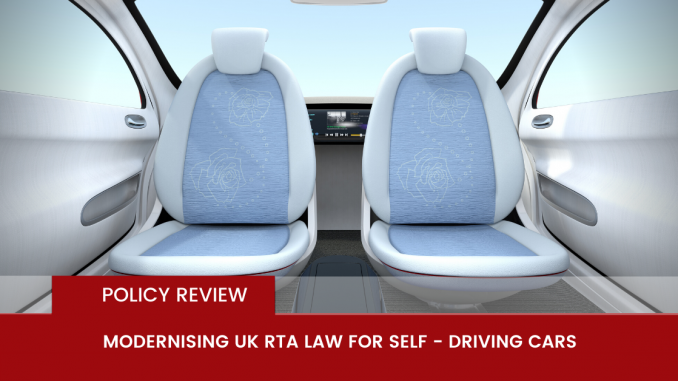
Introduction to Liability: The UK system of ‘Torts’
The main framework of liability for vehicle accidents in the UK is the traditional, ‘harm based’ law of Torts and if you were involved in a road traffic accident – and surprise, it wasn’t your fault, odds are the necessary rules for governing your redress and degree of responsibility will be contained in the following pieces of UK legislation: ‘The Road Traffic Act 1988’, ‘The Consumer Rights act 1988’ and ‘The Road Vehicles (Construction and Use) Regulations 1986’. But before you pick up your phone and ring your nearest high street personal injury lawyer to asses your future AI instigated claim, based on these statutes, we would urge you to continue reading just a little further to take a closer look at why the current framework for regulating vehicle Liability might not just yet be fit for purpose (and self-driving cars) just yet.
A closer look:
Whilst a key benefit of the UK legal system, which comprises of both common law (decided in courtrooms) and statutory instrument (legislation passed by government) means that current and future judges will be able to apply Law flexibly to the factual merits of road traffic claims. It becomes clear that the system in its current state is only suitable for addressing ‘traditional’ uses involving human ‘drivers’ and it’s not going to be so great when it comes to addressing issues presented by increasingly autonomous self-driving vehicles; importantly, it will need to change to accommodate the rapidly changing nature of vehicle use in the UK and across the world.1
The highest stages of vehicle autonomy i.e achieved during stages four and five of the NHTSA’s five stages of automation, will mean that eventually, it will no longer be reasonable to hold a human driver completely liable for a road traffic accident and future you will be able to argue a very important point about ‘control’. Namely, that because you had no control of what your car was doing, why then, should you as the innocent driver, be held accountable? And instead, we should blame the real culprit in this scenario; the autonomous algorithm. Importantly, in this circumstance, it could even be argued that the clear absence of a human driver in control can even be expected to indemnify the would have been previously culpable driver from ensuing legal liability.
Pre-empting Autonomous Machines with Proactive Legislation
It’s clear then that the development of highly autonomous self-driving cars will call for a proactive, legislative approach that will reconsider the current legal paradigm for how liability is decided. And seemingly, whilst current technological advances might exist far, from a future requiring machines being given legal personality so that we can sue them as some have suggested; consideration will however need to be given to how Law might sensibly pre-empt and regulate future scenarios involving machines, who will inevitably hold a great deal of power over our daily lives. Even more-so, given the critical role that programming engineers and automakers will have in designing such systems.
Despite their projected utilitarian like benefits, the issues outlined in this latest brief suggest that in the future it could be the autonomous algorithm behind your self-driving Tesla -or BMW, that will hold the heavy onus of liability when a failure inevitably occurs. What do you think? Let us know your thoughts on this exciting topic with a comment!
Dr Sven A Beiker, ‘Legal Aspects Of Autonomous Driving: The Need For A Legal Infrastructure That Permits Autonomous Driving In Public To Maximize Safety And Consumer Benefit’ (2012) 52 Santa Clara Law Review p.1153http://heinonline.org/HOL/Page?handle=hein.journals/saclr52&div=36&start_page=1145&collection=journals&set_as_cursor=0&men_tab=srchresults 2
International Transport Forum Report p.12
4‘European Civil Law Rules In Robotics: Study For The JURI Committee’ [2016] Legal and Parliamentary Affairs p.16http://www.europarl.europa.eu/RegData/etudes/STUD/2016/571379/IPOL_STU(2016)571379_EN.pdf
International Transport Forum Report, p,6
Noah J. Goodall, ‘Machine Ethics and Automated Vehicles’ [2014] Virginia Centre for Transportation Innovation and Research p.6http://people.virginia.edu/~njg2q/machineethics.pdf
